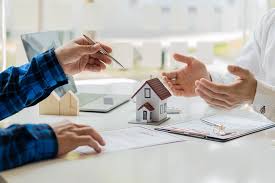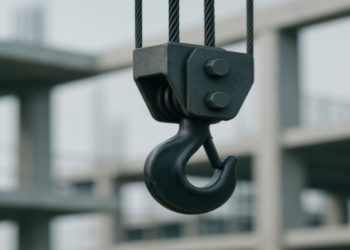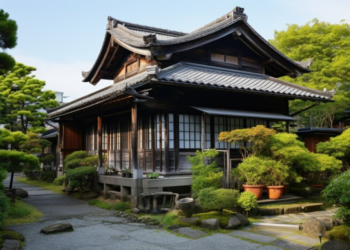When interest rates go up, the ripple effect hits property investors quickly. Loans get more expensive, monthly payments go up, and suddenly, a deal that looked great six months ago doesn’t make sense anymore.
But interest rate hikes aren’t just a problem — they’re also a signal. They tell you the market is shifting, and smart investors use that signal to adjust. Maybe it’s time to rethink your financing, look at rental yield more closely, or explore new locations where prices haven’t yet caught up.
This blog covers what rising interest rates really mean for your property investment strategy — and how to stay one step ahead.
What Triggers Interest Rate Hikes?
Interest rate hikes don’t just happen out of nowhere. They’re usually a response to bigger changes in the economy — things like rising prices, fast growth, or financial instability.
Most of the time, it’s central banks that decide to raise rates. Their job is to keep the economy steady, and interest rates are one of the main tools they use.
The most common reason for a rate hike is inflation — when the cost of everyday things like food, fuel, or rent goes up too fast. When inflation rises, people lose buying power, and the cost of living becomes harder to manage.
To slow things down, central banks raise interest rates. That makes loans more expensive, so people and businesses borrow and spend less. As a result, demand drops a bit, and prices stop climbing so quickly.
Sometimes, rates are also increased to control too much lending or fast-growing markets. If banks are giving out loans too freely, or if property prices are rising too fast, a rate hike can help cool things off and avoid a crash later.
When rates rise, it’s a sign the economy might be overheating. The goal is to slow things down just enough to prevent a bubble or runaway inflation. For property investors, that means watching the bigger picture, not just the property listings.
Other reasons include currency control (to keep foreign investment steady) or maintaining investor confidence. If a country’s currency is weakening, higher interest rates can help attract investors and stabilize things.
How Rising Rates Affect Property Investors
Let’s cover the key ways rising rates can impact your investment journey, from loan costs to long-term gains.
Loan Payments Go Up
This is the first and most direct effect of a rate hike. When the central bank raises interest rates, banks and lenders follow. That means any new home loan or investment mortgage you take on will likely come with a higher interest rate. And with that comes a bigger EMI (equated monthly installment).
Let’s say you were planning to buy a rental property with a loan at 9%. If the interest rate jumps to 12%, your monthly repayment goes up sharply—even if the loan amount stays the same. This eats into your cash flow and makes the property less affordable.
It also lowers your borrowing capacity. Banks assess how much they can lend based on your income and how much of it will go toward repaying the loan. Dan Close, Founder and CEO of BuyingHomes.com, shares, “With higher interest, your EMI rises, which means the bank may offer you a smaller loan than before. So even if the property price hasn’t changed, your access to financing gets tighter.”
This can be a dealbreaker, especially for new investors or those relying heavily on leverage. It also forces investors to bring in more cash upfront, which isn’t always possible.
You Can Borrow Less
Higher rates also mean the bank is willing to lend you less. Why? Because your income now supports a smaller loan amount due to the higher EMI.
Say you could earlier borrow Rs. 15 million at 8.5% interest. When rates go up to 11.5%, your loan eligibility may drop to Rs. 12 million — even though your income hasn’t changed. That can mean the difference between buying a 3-bedroom flat and settling for a smaller unit, or missing out on a location you really wanted.
This change forces many investors to either lower their budget or bring in more cash upfront. Either way, it adds friction to the buying process—and that slows down the market.
Property Prices May Cool Down
When loans get expensive, fewer people are in a position to buy. First-time buyers wait. Investors pull back. This drop in demand often leads to a softening of property prices.
You won’t always see prices crash, but growth definitely slows. In some markets, especially ones that were already overpriced or driven by speculation, prices may even fall.
This can be tough if you bought recently and were banking on short-term appreciation. But it’s also a window of opportunity. If you’re holding cash or have a good credit score, you’ll find sellers more open to negotiation—and fewer buyers to compete with.
Property Value Grows Slower
Even if prices don’t fall, you’ll likely notice that the usual appreciation slows down. A property that was growing 10–12% each year may now only increase by 4–5%. Sometimes, it may stay flat for a while.
This happens because high interest rates reduce the number of people actively buying, which naturally slows market momentum. Builders may also slow down new projects due to reduced demand and higher financing costs, leading to fewer price hikes.
If your strategy relies on buying and holding for quick value growth, this change means you may have to wait longer before you see real gains—or even refinance.
Returns Get Tighter
Real estate investing is all about the margin—the gap between what you spend and what you earn. When interest rates rise, your cost of holding a property increases. At the same time, if property prices slow down and rental growth stays flat, your overall return gets squeezed, says Dana Ronald, President of Tax Crisis Institute.
So even if your investment doesn’t lose money outright, the return may not be worth the effort and risk. A deal that looked good at 8% loan interest might break even—or worse—at 11%.
That’s why many smart investors start looking at higher-yield areas, lock in fixed-rate loans, or even shift toward cash purchases (if possible) to avoid getting stuck in a tight margin zone.
Buyers and Renters Become Cautious
“It’s not just investors who change behavior when rates go up—homebuyers and renters do too. People become more price-sensitive. They compare more options. They delay decisions.
This affects both your selling timeline and your rental strategy. If you’re flipping a property, it may stay on the market longer. If you’re renting, tenants may negotiate harder or move to more affordable options.” shares John Gill, Operations Director at Easy Concrete Supply
Even people who were excited to buy a home may hold back, waiting to see if rates come down again. That means more unsold inventory, more rental listings, and more competition in general.
Fewer Investors Means More Deals for You
Now here’s the upside: rising interest rates push casual or over-leveraged investors out of the market. And when there are fewer people buying, the ones who stay get better deals.
If you’ve kept your finances healthy, or you’re in a position to buy with lower loan exposure, this can actually be a great time to invest. Sellers are more flexible, agents are more responsive, and the rush to grab “hot” properties fades.
Also, fewer buyers mean you don’t have to overbid or stretch yourself just to secure a deal. You can take your time, negotiate better terms, and even target properties that would’ve been out of reach during a boom.
Conclusion
When interest rates go up, property investing gets a bit harder — but not impossible. Your loan costs rise, your profits might shrink, and things move slower. But this is also when smart investors stay calm, adjust their plans, and look for better deals.
The key is to focus on cash flow, avoid risky loans, and be patient. If you stay careful and plan well, you can still grow your property portfolio — even in a high-rate market.
Rising rates aren’t the end. They’re just a sign to invest wisely.


![7 Best POS Software in the UK [2026 Edition]](https://todaynews.co.uk/wp-content/uploads/2026/02/7-Best-POS-Software-in-the-UK-2026-Edition-360x180.png)










































































